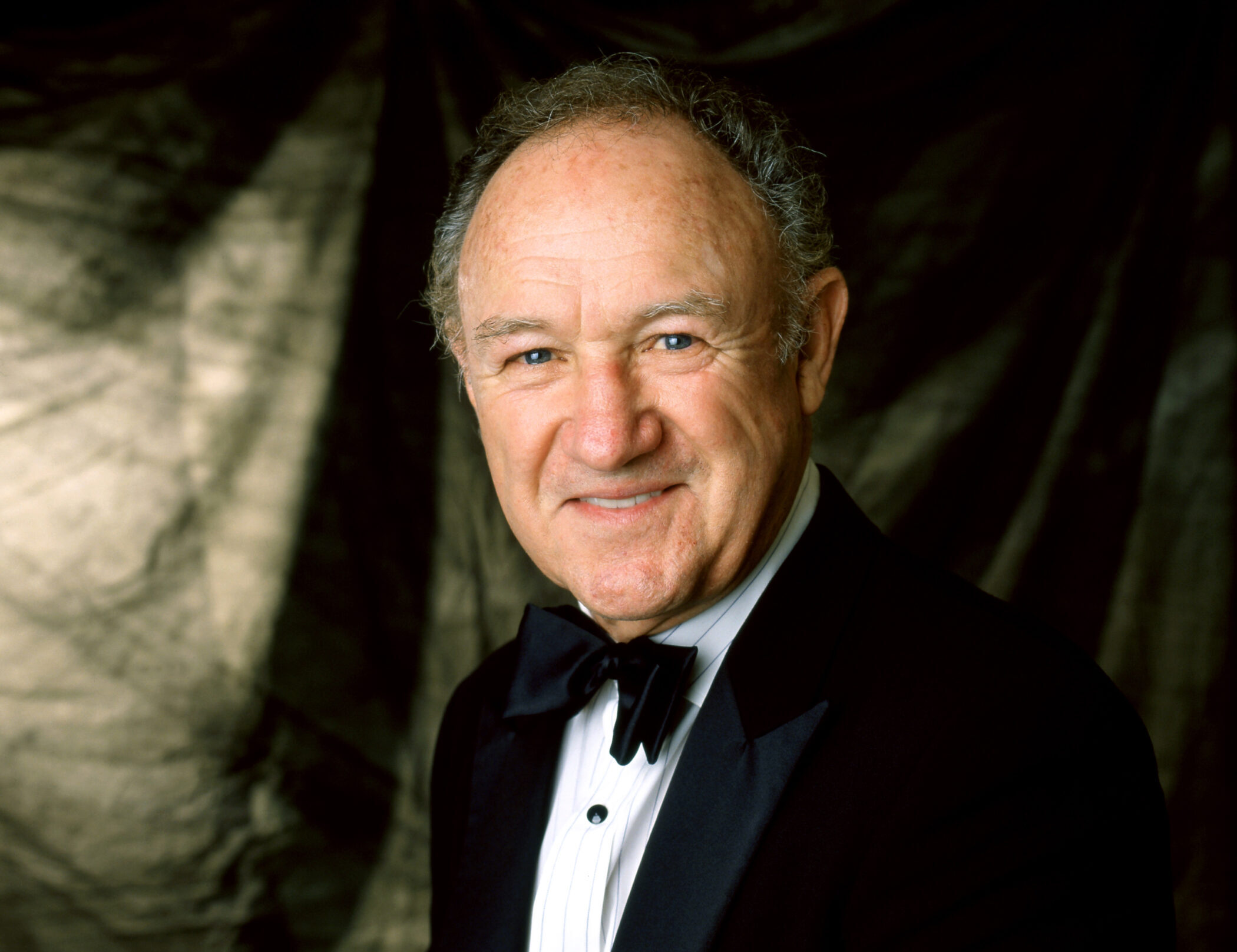According to police investigators, the death of 95-year-old actor Gene Hackman and his wife Betsy Arakawa, remain a mystery.
The couple was found inside their Santa Fe, New Mexico home last week, though authorities believe they likely died upwards of nine days earlier. Carbon monoxide poisoning has been ruled out. Adding to the intrigue is the fact the couples, who are nearly 30 years apart age-wise, were found in separate rooms.
Known as “Hollywood’s Everyman,” Gene Hackman’s career spanned over 40 years and included such blockbuster films as The French Connection, Mississippi Burning, Superman and Hoosiers.
Born San Bernardino, California and raised in Danville, Illinois Hackman lied about his age to join the Marines. In an old interview clip that surfaced last week following his death, the versatile star talked about his early years with the late James Lipton on the show, “Inside the Actors Studio.”
Gene, who was 71 at the time, is asked how old he was when his father left him and the family.
It’s clear the question elicits emotion and a pause as Hackman gathers his voice to respond.
“About 13, I guess,” he answers. “It was tough.”
Lipton then goes on to allude to the heartless, cavalier way that Hackman’s dad abandoned the family.
“I was down the street, playing with some guys,” Gene acknowledged. “And he drove by and kind of waved…”
At that point, Gene Hackman was unable to keep talking as he fought back tears.
“Excuse me,” he tells Lipman. “It’s only been 65 years or so.”
“I hadn’t realized how much one small gesture can mean,” Hackman once said. “Maybe that’s why I became an actor.”
There’s no doubt that our pasts shape us, for good or bad. Hackman’s painful childhood propelled him to escape into the military. After he was discharged, he briefly studied journalism before going to New York to study television production. Acting came next.
Fathers come in all shapes and sizes, of course, but good dads have certain traits and characteristics in common.
Good fathers love and marry their children’s mother. This doesn’t mean heartbreaking things don’t happen, but every child is owed a mom and a dad.
The best fathers lead their families spiritually, knowing worship and time with a faith community on a weekend should be prioritized over travel ball. They pray with and for their children.
Fathers might not be the only source of income for their families, but assuming they’re able, they should be turning their gifts and talents into treasure that helps make the ends meet. They also demonstrate that time together is more important than toys.
Loving dads teach their children that good manners are worth more than millions of dollars, that listening is more important than talking, and that doing the right thing at the right time is nonnegotiable. They model the value and necessity of friends by having a few good ones.
Dads teach their children how to throw, bounce, kick, or hit a ball, change the oil, mow the lawn, chop wood, swim, ski, hunt, fish, ice skate, pitch a tent and ride a bike. They expose their children to a wider world by taking them there, whether on foot or by car, plane or train.
Exceptional fathers are concerned about protecting their sons’ and daughters’ hearts and minds. Good dads don’t watch filthy movies and expect their kids to remain clean. They encourage them to read by getting a library card and reading themselves. They realize values are more often caught than taught.
Good fathers aren’t perfect, but they admit when they’re wrong, and apologize for their mistakes. They’re always striving to improve.
The best dads are also optimistic, have a sense of purpose, reject cynicism and embrace sincerity. In the end, they know they won’t be around forever, so they make sure their children know how much they love them — and how being their father was a privilege and the best job of all.
Gene Hackman missed out on the blessing of a responsible father. He still went on to lead a productive life, but the emotions he expressed to James Lipton back in 2001 made clear that father wounds leave scars.

